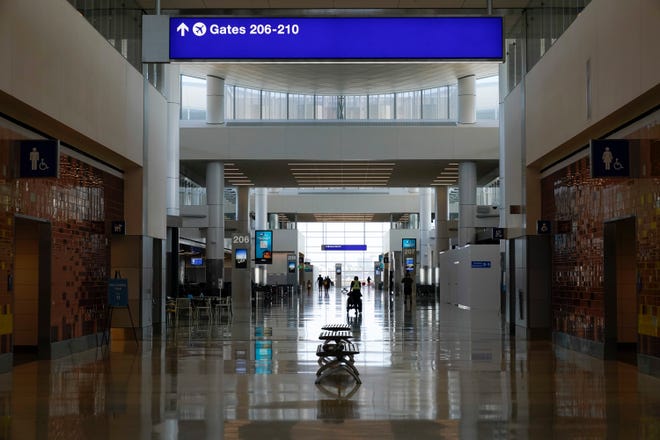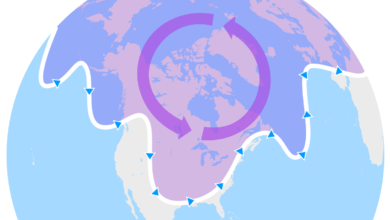
The travel landscape has changed dramatically in just a few short weeks.
The United States is on its fourth COVID-19 surge thanks to the highly contagious delta variant, with cases bouncing back to levels not seen since February 2020. Other countries are also reporting more COVID-19 cases.
That leaves travelers, many of whom booked trips months ago when case counts were low, wondering whether or not to follow through with their plans.
"The delta variant is a different beast," Richard Webby, who helps lead St. Jude Children’s Research Hospital’s Infectious Diseases Department, told USA TODAY. "This virus is everywhere. ... As far as (whether or not it's safe to) travel, it depends on what you're trying to do."

►US COVID-19 map:Tracking cases and deaths
►Canceling or postponing a flight due to delta? What to know about airline ticket policies
How does the COVID delta variant affect travel?
Health experts say travel risks vary from person to person, but it may be time for certain travelers – especially those who are unvaccinated or susceptible to severe illness from the virus – to postpone their trips.
“If you’re vaccinated and fully immunized against this virus, then it poses a slight increased risk to you,” Webby said. But among the unvaccinated population, “this virus is going to cause more cases; it’s going to spread more easily and more rapidly. … If you’re not vaccinated, now is not a good time to travel.”
The U.S. reported 131,917 new cases on Wednesday, surpassing levels not seen since February, according to Centers for Disease Control and Prevention data. Over 90% of counties in the U.S. are experiencing high or substantial transmission, and the CDC suggests both vaccinated and unvaccinated travelers avoid travel to more than 70 countries due to high COVID-19 case counts.
“The delta variant is around twice as transmissible as the variant that caused such a horrific period in our history in December and January,” said John Swartzberg, a professor at the University of California, Berkeley’s School of Public Health. “It’s going to be a lot easier for you to get infected this time than it was (during the last surge of cases).”
Purvi Parikh, an immunologist who has worked as an investigator for some of the COVID-19 vaccine trials,advises vaccines for travelers since the majority of the recent COVID-19 deaths and hospitalizations are among nonvaccinated people. She also suggests checking local guidance and infection rates before booking a flight.
“You may want to defer travel if an area is having a spike or surge,” she said. “Be adaptable (because) much of this is dynamic and changing.”
►Travel restrictions:How COVID-19 travel restrictions have impacted families and couples
►CDC travel alerts:CDC says travelers should avoid France, Israel and other destinations
Is it safe to travel during the COVID delta surge?
Rachael Piltch-Loeb, a researcher at Harvard’s School of Public Health, says there’s no “one size fits all” piece of advice for travelers debating whether or not to postpone their trips. The level of risk depends on travelers’ vaccination status, whether they have an increased risk for severe illness and what the infection rate is like at their destination.
She added that breakthrough cases remain rare, but should be taken into consideration by vaccination travelers.
A small percentage of people who are fully vaccinated will still get COVID-19 if exposed to the virus that causes it but are much less likely to get severely sick or die, according to the CDC.
“I would think about my own risk tolerance, meaning am I OK if I get a little bit sick?” Piltch-Loeb said. “If you are uncomfortable with the potential that you may be infected ... then your decision making may be a little bit different.”
The capacity of the destination’s health care system should also be considered, now that certain hospitals are running out of available ICU beds.
“That would be a concern if I was planning to travel (to those areas),” Piltch-Loeb said. “I would want to feel comfortable that in the event anything happened to me, COVID or otherwise, I could be treated by the medical system there.”

Piltch-Loeb recommends getting tested ahead of travel, regardless of destination or vaccination status, and opting for safer forms of travel such as driving. She also suggests people go back to “key virus mitigation strategies,” such as mask wearing, social distancing and avoiding time indoors with people whose vaccination status is unclear.
“If I'm driving to a cabin in the woods and planning to spend most of my time outdoors, that's a little bit different than flying somewhere and planning to be sightseeing in another country,” Piltch-Loeb said.
►Fact check:Hospitals staff near max capacity, but COVID-19 isn't business as usual
►Breakthrough cases:COVID-19 transmission among the fully vaccinated is rare, but possible, experts say
What sort of travel restrictions are in place today?
Travel restrictions vary across countries.
Some are continuing to ease roadblocks to entry – both Canada and the United Kingdom lifted travel restrictions against American travelers in recent weeks– while others are starting to introduce new safety protocols or reimpose restrictions that had been pushed aside ahead of the busy summer travel season.
Puerto Rico will require all hotel and short-term rental guests to show proof of a COVID vaccination or submit a weekly negative COVID-19 test starting Monday, and both France and Italy require proof of vaccination to enter restaurants and other venues.

“If I was a country that didn’t have a lot of this (delta variant) activity going on, it’s a virus that I would want to keep out of my community,” Webby said. “I would certainly be imposing travel restrictions from places where this virus is rampant. Unfortunately, at the moment, that’s a lot of places around the globe.”
Parikh believes the variant “will definitely impact international travel.”
“Various parts of the world may go back on lockdown depending on spread and vaccines and testing will be required,” she said via email. "(Some countries) may have to reinforce lockdown, travel bans, masking and quarantines, depending how bad it is.”
She added that the easing of restrictions will depend on countries’ vaccination efforts, and “many are behind.”
Popular tourist destinations in the U.S. are starting to reimpose COVID-19 restrictions, as well.
Mask mandates are resurfacing in destinations across the U.S. like Las Vegas and Los Angeles, and Hawaii has cut its restaurant and bar capacity down to 50%. Other cities, like San Francisco and New Orleans, now require proof of vaccination for indoor events.
The CDC cautions Americans to make sure they are fully vaccinated before traveling and recommends all travelers, regardless of vaccination status, wear masks and self-monitor for COVID-19 symptoms. If traveling internationally, fully vaccinated travelers should also get tested three to five days after travel. Unvaccinated people traveling both domestically and internationally are advised to get tested one to three days before and three to five days after travel and self-quarantine 7 days after returning.

►Travel to France:France COVID-19 pass now required in restaurants, trains
►Italy 'Green Pass':Proof of COVID-19 vaccine, test or recovery needed for museums, indoor dining
Source link








